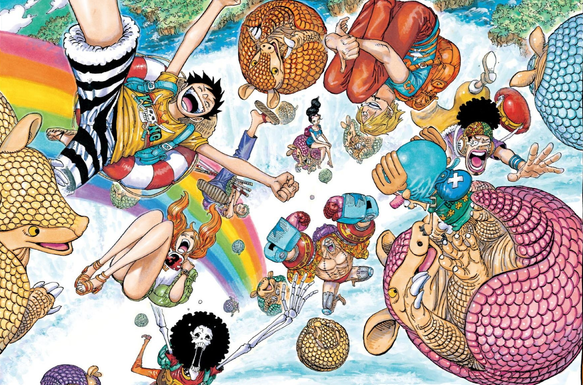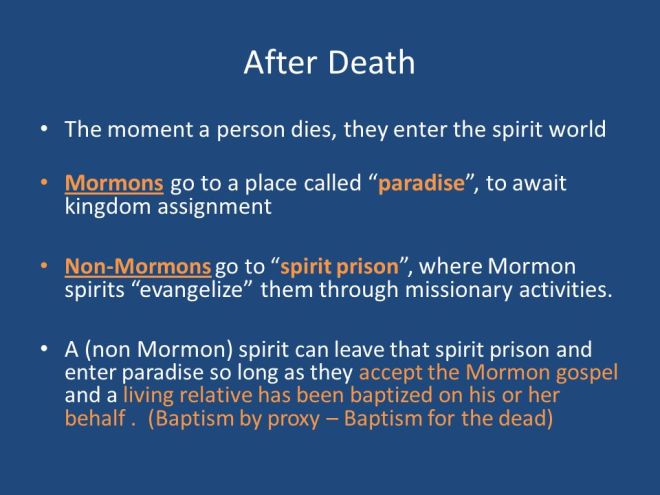If there’s one rule every LARPer knows, it’s this: act like your character, not like yourself. It is more important that costuming, combat or mechanics. Without it, LARP would be an unmasked, ego-centric game of nerdball.
Except that IC doesn’t really exist. It is an illusion, one which prevents us from addressing real problems, and until we toss it in the garbage and examine IC vs OOC critically, we’re dead in the water.

The Subjectivity of IC
To define IC, we have to identify two conditions: what is a character, and what does it mean to act like that character.
Your character is something that, usually, you have created. You’ve read a variable amount of source material, somewhere between none and too much, and made at least 3 Spotify playlists to show your friends and hope they lend you some hype to make the leap and actually play the thing that has until now been a self insert music video action sequence.
Shut up reader, YOU’RE the one projecting, not me.
Anyway, you’ve researched and created the character. It must have its own goals and desires. It must inhabit the game world and have some of that game world’s native qualities. It is something you’ve designed and that you will play, but mustn’t be you. That is the colloquial golden rule: your character can’t be you.
Except that it’s literally comprised entirely of you, your research, ideas, desires and gameplay. It is literally inseparable from you, at the very least a thought experiment, and at most it is your shadow, the experiment of “what I’d be like if I had a crossbow and lots of money and people had to love me.”

“Bruce,” you say, “you’ve gone too far. No matter how the character is made, people can definitely act like their characters.” Sure, reader, you insipid amoeba, people can act like their characters, but who judges what a character should act like? Does the player who made the character get to judge? What about the ST, director or ref? What about the RST? What about the game’s creators? Is the character judged based on their race/class/sex/gender/one-dimensional-revenge-backstory? Is it based off of how it interacts with other characters made by other characters, made by other players, subject to the same broad and mayfly-temporary conditions?
If someone is only called out for metagaming after 4 years of contiguous character play, were they metagaming all along, or was there just a shift change in the ST hutch?
You are your character, but you aren’t the judge of whether or not you act like your character: everyone else is.
This is a problem.
The Omnipresence of OOC
If IC exists, then it must have an inverse, though maybe must is a strong word, but I don’t make these rules, I just criticize them with pathological zeal.
The inverse of IC is OOC, Out of Character, and it is the intrusion of player desires, goals or actions upon what is supposed to be an in-character world. OOC is the fly in the ointment by conventional standards. The bogeyman who causes people to create unnecessary conflict, or ruin the mood. It’s a cassus belii for any form of transgression that stems from a player, attached to “evidence” from gameplay.
But if IC is entirely comprised of player qualities, then OOC is inextricably linked to it. Players set goals when creating their characters, or develop them playing their characters. Increasingly we call it steering, good metagaming, good OOC, but it’s still problematic because it implies that there’s also a bad OOC, but literally nothing separates them but buy-in from other players.
Neurologically, we take our lives into game, it colors our aspirations and informs what is enjoyable and what is unpleasant. Call it bleed, call it “being a normal human that doesn’t need a LARP scholar to invent a word,” call it whatever you want, but life doesn’t stop in LARP. Escapism isn’t actual escape, it’s an aside, or a filler episode, or a tinted lens applied over otherwise grainy, crappy film.

You’re OOC, your ST is OOC, the people who wrote the game are OOC. Everyone is filled with a cacophany of OOC motivations and inspirations, whether it’s the final shoot-out scene in “The Good, the Bad and the Ugly” where the “Ecstasy of Gold” is playing, or whether it’s the fact that you haven’t taken out the trash in 8 days and you’re trying really hard not to think about what a lifeless slob you are on your way to game site.
The Fiction we Think we Need
“Okay Bruce,” you say with exhaustion, and probably undiagnosed anxiety (don’t shoot the messenger), “if you’re so smart, why have IC and OOC existed since the dawn of roleplay? Why is it understood around the world?” Well, reader, people believe in all sorts of stupid things that lack evidence, and if you don’t believe me, go read up on Antivaxers and get back to me.
We need IC and OOC to explain-away behaviors that deviate from the game’s expected parameters. Who’s expectations? That depends on the game, the clique, the conditions on the ground. But like the hastily constructed rules of a 16th century witch trial, we amass judgments to explain why Steve is being such a dick, and why Stacey is such a great roleplayer.
IC is our subjective thumbs-up for players we approve of. We don’t look too deeply into their motives, we don’t question their actions, we simply look for skin-deep criteria that suggests that may not be acting out of bald player self-interest. Sometimes people do an admirable job of sticking to the rules and avoiding their own motivations, but by doing so they are fulfilling an OOC desire to be seen as IC, whether it’s by others are themselves.
OOC is how we knock down those who play in a way we don’t like. Is the dragon-hoarder kosher if all Ventrue are greedy in lore? Or is the dragon-hoarder a menace to gameplay because the ST doesn’t like econ? Maybe there are some rare cases of people, barely in costume, breaking character every 10 minutes to crack open a cold one and Hank Hill the place up, but I’d wager that’s rarer than we think.
We claim that the metagamer’s motivations IC are too close to their OOC desires, that they must be corrupt, but what are they corrupting anyway?
The Myth of the Perfect Game
If you like OWOD, you probably believe, implicitly, that if everyone roleplays as the clans and characters are written in the source material, minus blatantly racist writing that is now 20+ years out of touch, that the game will be perfect, as you’ve envisioned it. That if all elves are elves, all dwarves are dwarves, and all orcs are orcs, that the game experience will be richer.

But right out of the gate, this is an impossibility. Not all source material is written to the same quality. Not everyone will interpret that source material in the same way, or be able to perceive the behavior of others in all instances. Anything open to interpretation will be picked apart. You’re more likely to arbitrarily spot breaches of IC in others due to the fact that you just really don’t like Liz and the way she talks to you in-game, and you think she thinks you’re ugly and you dated her ex and she doesn’t like it, and she DEFINITELY doesn’t understand what Tremere are all about.
OOC vs IC is our rudimentary explanation for why games don’t go the way they say they will on the tin. As a culture, LARPers are peculiarly obsessive about genre orthodoxy, believing in good faith that the closer we cleave to the original content, the better our experience will be. Therefore deviations are blatant threats to gameplay, threats to enjoyment. And OOC becomes a very convenient way to cast down, and cast out, those we do not like.
Bad Foundations, Bad Outcome
With the rise of high budget LARPs that are almost reenactment events in their level of detail and mammoth costs, our culture is engaging in an experiment to see if it’s possible to approach near-perfect immersion, near-perfect IC, and if there we will find the better game, without the poors and their bad costuming, lack of time off, or real life problems to intrude upon our perfect absentee experience.
We attribute long-standing feuds and grudges to metagaming. Our enemies act OOC. Our friends act IC. Or our friends are OOC but we agree to it, so it’s steering. And our enemies can’t keep OOC out of game, and bring it IC, because they just can’t cut it, because they’re people of lower quality.
We don’t believe people who have come forward with allegations of gross misconduct up to and including sexual assault because we have drawn the line that demarcates OOC and IC and said “Well she can’t be trusted. She crossed the line.”
Almost all of the problems facing campaign games today are exacerbated by our reliance on OOC vs IC as a litmus test for quality. So long as we insist on using these terms as ciphers for our culture, we will be blind to better solutions.
The Meta Beyond Metagaming
LARP is a metagaming activity. We approach it with goals and desires, wish fulfillment or social experiments or a desire to make friends and wear costumes. We choose characters based on a lifetime of aesthetic or thematic beliefs, and if you do not believe me, just ask someone what music inspired their character, and if they tell you it’s Avenged Sevenfold, in your moment of horror you will understand.
IC needs to be replaced as a term. In-character is less important than “In-Keeping-With-The-Game,” and all of its OOC culture and expectations. If your local scene values people taking a dive and swimming in drama, you will be lauded for the maudlin drivel you manage to spew in the pursuit of 90’s-dark perfect sorrow. If your local scene is made up of people who take out their personal mediocrity on others through card collecting, you will be ignored and trampled upon unless you also engage in a competitive, meaningless and painful game of card collecting.
There’s so many varieties of gameplay to hate.
Steering is good. Steering is the real value of LARP, to set an experiential goal and go for it. LARPs should say on the tin what is and isn’t possible, the criteria of reaching these goals, and they should help players reach them, especially if they’re for profit. Subway’s goal is to get customers a sandwich. The guy behind the counter doesn’t look down on you for your topping choices and say “you just don’t understand the lore of the salami.”
Neither should you.
You make great points, but you will never apply them.
In fact, I don’t think you’ll ever really apply yourself to anything.
It’s cool you have this outlet though. 👍
LikeLike
“Deal with it IC,” was the terrible, terrible advice that plagued and rotted away the larp I was in. I joined a local larp in college with a few friends, and as the noobs, we often asked the more experienced players for advice. Sometimes we got really great advice, but “deal with it IC,” was a turd I heard from more players than I can count. I’m not sure who first said it or how it traveled around, but it was the go-to advice shoveled out for just about any problem.
“I’m really not sure why X player has been targeting my character the last few games, and it’s making me uncomfortable. What should I do?” –> “X is probably just trying to set up some plot for your characters. Try calling them out IC next game, see what happens.”
“Hey, Y was really upset after last game. I think Z went too far with that scene and I saw Y crying in the bathroom later. What should we do?” –> “I’ll help you set a social trap for Z next game to make them look like a buffoon and solidify your ties with Y’s faction more.”
“A and B are literally destroying the economy of the game and driving players away with their dragon-hoarding and power gaming. The game has ground to a halt because no one can DO ANYTHING. How do we address this?” –> “Don’t worry, the _____ faction has a plan for next game to bring them down. It’s gonna be great!” (plan doesn’t work because the power gamers consolidated power and twisted the rules to their advantage because of course they did, rinse and repeat next month).
“Um, C sent me a thinly veiled threat over text if I ‘mess with their character again.’ What the hell??” –> “Well, what did your character do to C’s?” –> “I don’t know!” –> “Why not talk to D’s character, they’re good at espionage and can gather the data for you to figure out what your character did to earn C’s ire, then you can form an IC response.”
NONE of these scenarios should have been dealt with IC! All of them should have been dealt with outside of the game. Many of them shouldn’t have been the player’s burden to address to begin with, but the staff’s job to address. But we were actively discouraged from doing anything OOC to talk to anyone or to fix anything until the boiling point, only to be told, “Well, why didn’t you talk to them out-of-character about this?” Um, because you told us not to, lest we be stamped with hated “METAGAMER” title and our social lives ruined??
I also discovered that this was a tactic used by the more socially manipulative and abusive players to force others into confronting them in-game, where they could pretty much react and reply however they wanted and if you got angry or upset with them, they’d come back with, “calm down, it’s just a game, this is how my character reacts in that situation. I think you’re just mad your character didn’t get/do the cool thing.”
LikeLike
[…] IC: the Golden Rule that never was […]
LikeLike
Salty Stan called, he wants his gimmick back.
LikeLike
[…] means to be in-character and restraints on in-character actions, and on the drive home I remembered this article about the harm done by the concept of IC vs. OOC as a measure of worth. I think it aligns fairly […]
LikeLike
[…] IC: the Golden Rule that never was […]
LikeLike